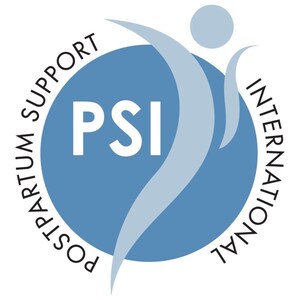
Study on Antidepressant Use during Pregnancy and Risk of Autism Has Flaws
PSI Urges Women to Discuss Benefits/Risks of Medication with Their Doctors
PORTLAND, Ore., Dec. 22, 2015 /PRNewswire/ -- A recent, highly publicized study linking autism to the use of antidepressants during pregnancy has side-effects of its own. It is misleading and potentially harmful to women who may need antidepressants during pregnancy for their mental health and safety.
Photo - http://photos.prnewswire.com/prnh/20151221/317608
The study Antidepressant Use during Pregnancy and the Risk of Autism Spectrum Disorder in Children, was published in JAMA Pediatrics in December. Postpartum Support International (PSI), the foremost organization dedicated to helping women with perinatal mood disorders, is joined by 50 leading reproductive psychiatric clinicians from around the world in questioning the conclusions of this study.
The findings of the study could have been obtained by chance, given that there was no association found between antidepressants and autism when the authors only looked at children diagnosed by a psychiatrist or neurologist. Furthermore, the study did not take into account other proven risk factors, and was based solely on women who filled prescriptions, without evidence that the medications were actually taken.
The way the study presented findings may be confusing. "The authors' use of statistics is misleading. They frame the main finding as an '87% increase' of autism in offspring of pregnant mothers who took antidepressants. In fact, the absolute risk increase was less than 1%," said Ann Smith, CNM, and president of PSI. Absolute risk is the risk for the studied group against the risk for the general population.
Many studies have explored this topic. Unfortunately the media focuses on papers with positive findings. "Two larger, well-controlled epidemiological studies in 2013 (one including 630,000 Danish children) failed to find an association between prenatal exposure to antidepressant medication and autism spectrum disorders," says Catherine Birndorf, MD, founding director of Payne Whitney Women's Program at Weill Cornell Medical Center.
Scrutiny of the study reveals serious methodologic errors. "There is already strong evidence that mothers with depression are more likely to have a child with autism. The genes found to be involved in depression overlap with those playing a role in autism. Despite these clear genetic links, the authors of the study failed to control for family history," said Carly Snyder, M.D. and research chair of PSI.
A risk versus benefit analysis occurs daily among women, their partners, and clinicians involved in reproductive psychiatry. Alarmist headlines cause many women with a history of depression to stop their antidepressant medication, increasing their chances of relapsing to more than 50%. "Perinatal depression has known risks to mother and child. PSI encourages women to discuss their personal situation with their clinicians so that they can make well-informed decisions about medication during pregnancy. Our goal is to promote resources that provide research-based data on risks and benefits," said Wendy Davis, PhD, Executive Director of PSI.
For more information visit www.postpartum.net.
CONTACT: Sharon Gerdes, Email, 719-358-9499
SOURCE Postpartum Support International






Share this article